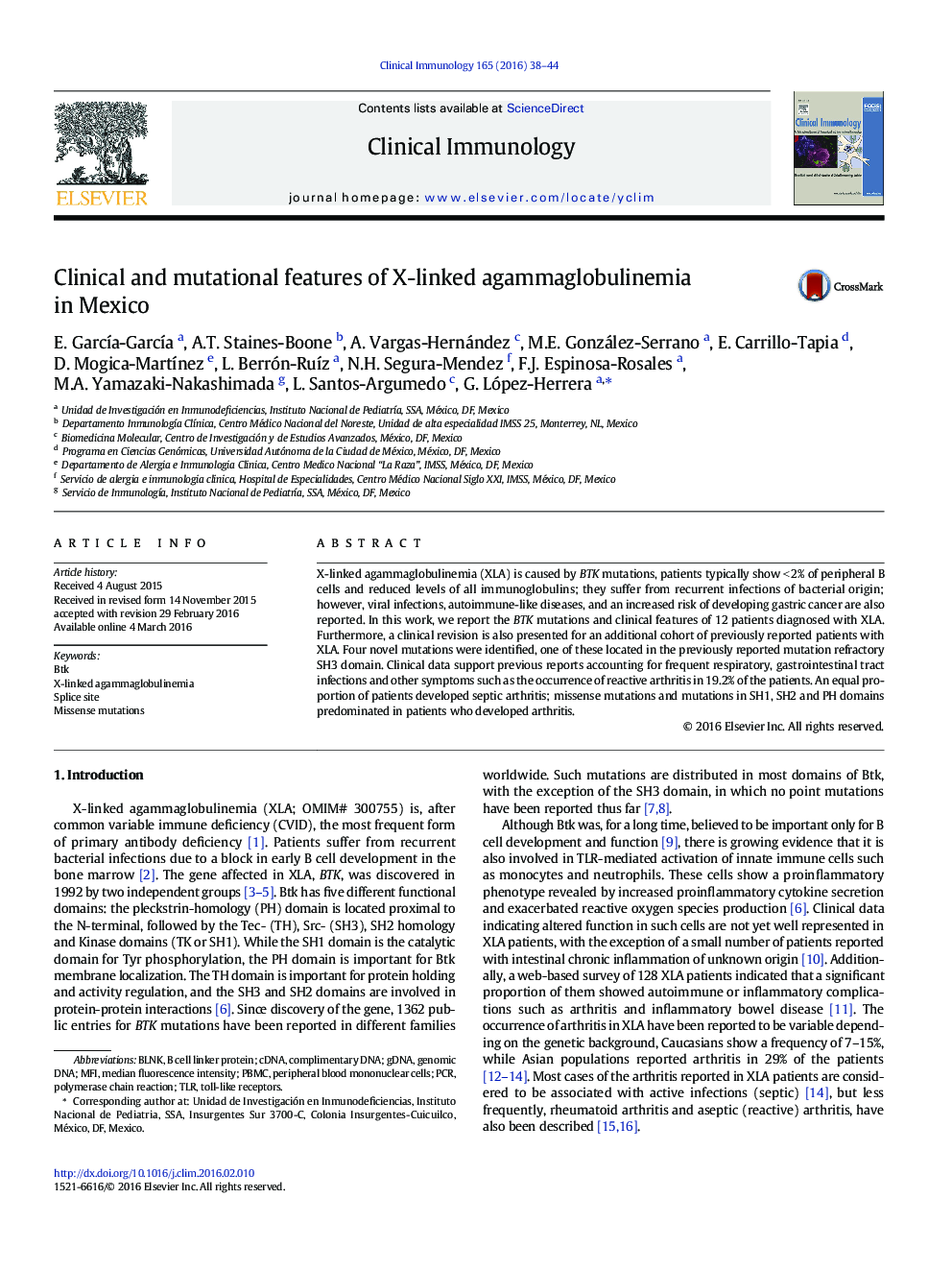| Article ID | Journal | Published Year | Pages | File Type |
|---|---|---|---|---|
| 3256807 | Clinical Immunology | 2016 | 7 Pages |
•Novel mutations are reported, one of them in a previously reported refractory domain.•Splice site mutations frequency is highly represented (56% of patients) in this study.•XLA patients show significant occurrence, 19% of rheumatoid arthritis-like.
X-linked agammaglobulinemia (XLA) is caused by BTK mutations, patients typically show < 2% of peripheral B cells and reduced levels of all immunoglobulins; they suffer from recurrent infections of bacterial origin; however, viral infections, autoimmune-like diseases, and an increased risk of developing gastric cancer are also reported. In this work, we report the BTK mutations and clinical features of 12 patients diagnosed with XLA. Furthermore, a clinical revision is also presented for an additional cohort of previously reported patients with XLA. Four novel mutations were identified, one of these located in the previously reported mutation refractory SH3 domain. Clinical data support previous reports accounting for frequent respiratory, gastrointestinal tract infections and other symptoms such as the occurrence of reactive arthritis in 19.2% of the patients. An equal proportion of patients developed septic arthritis; missense mutations and mutations in SH1, SH2 and PH domains predominated in patients who developed arthritis.
